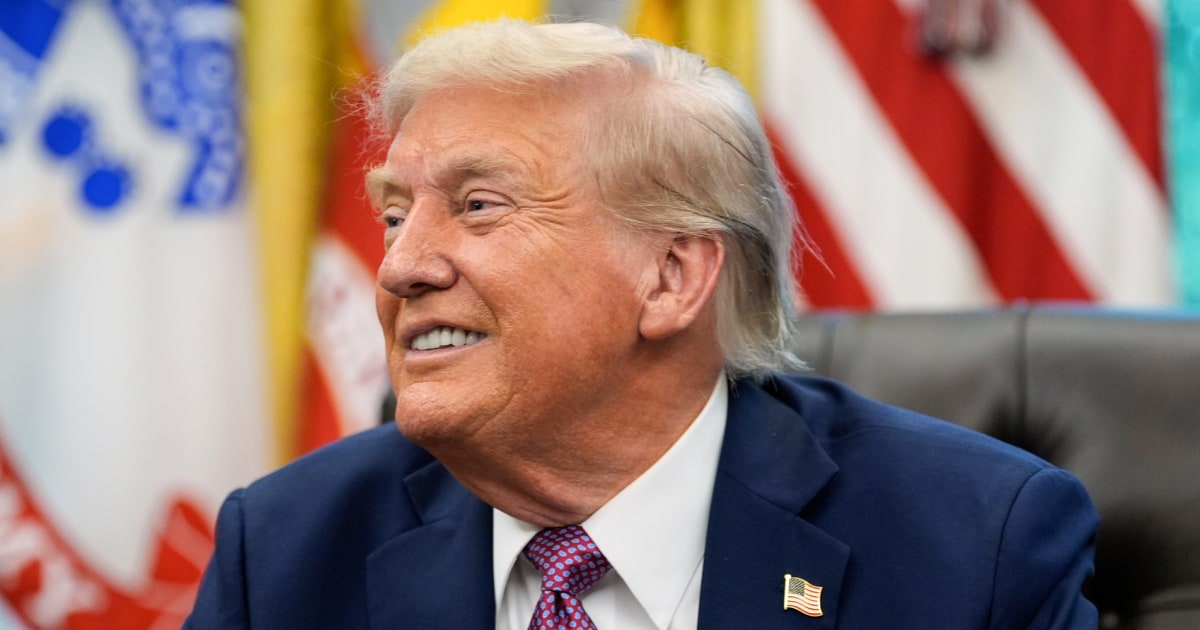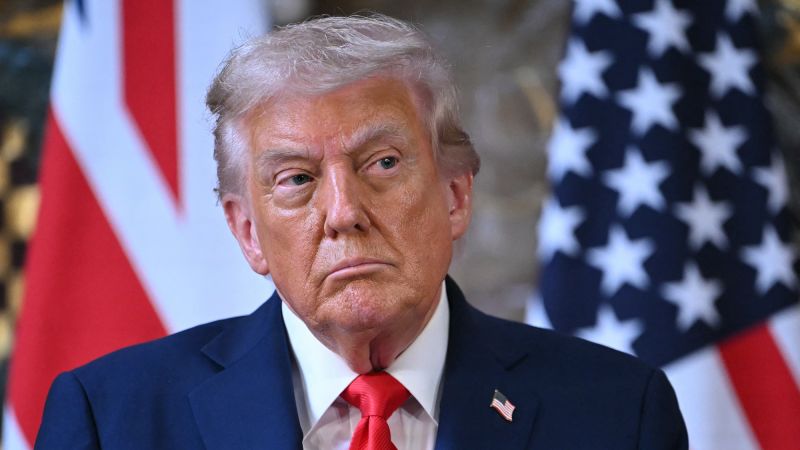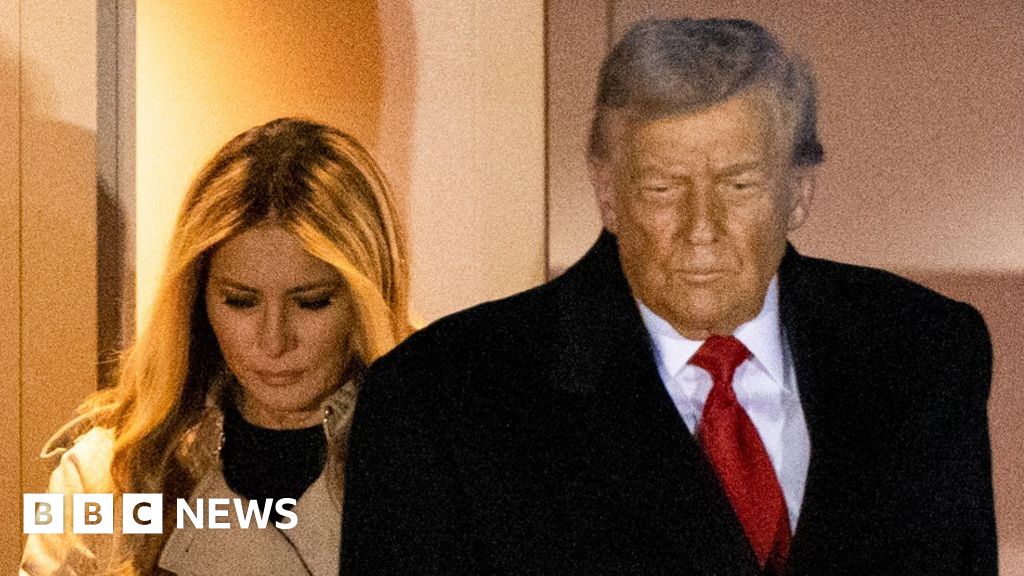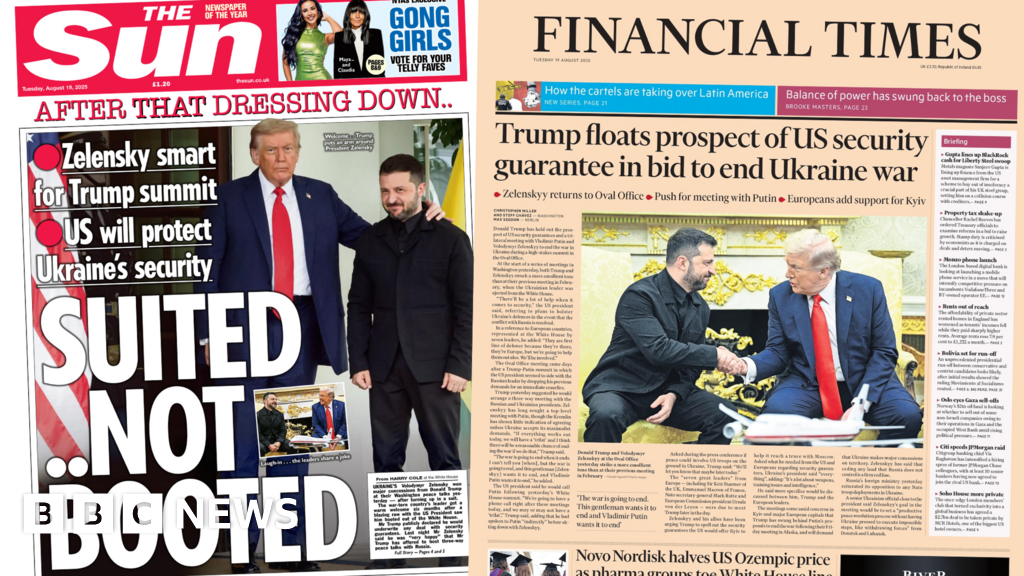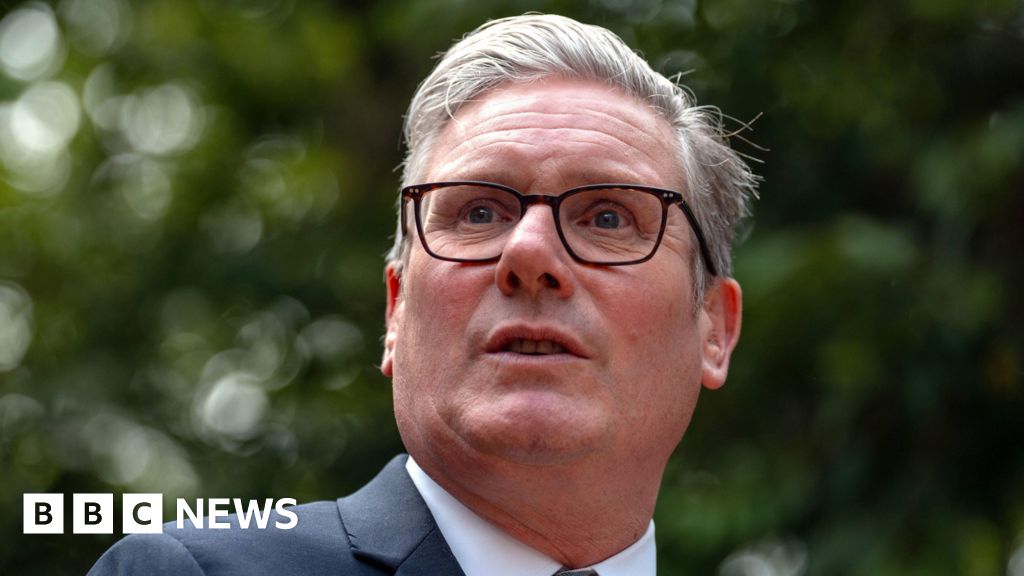UK-US Relationship Flourishes Amidst Political Tensions
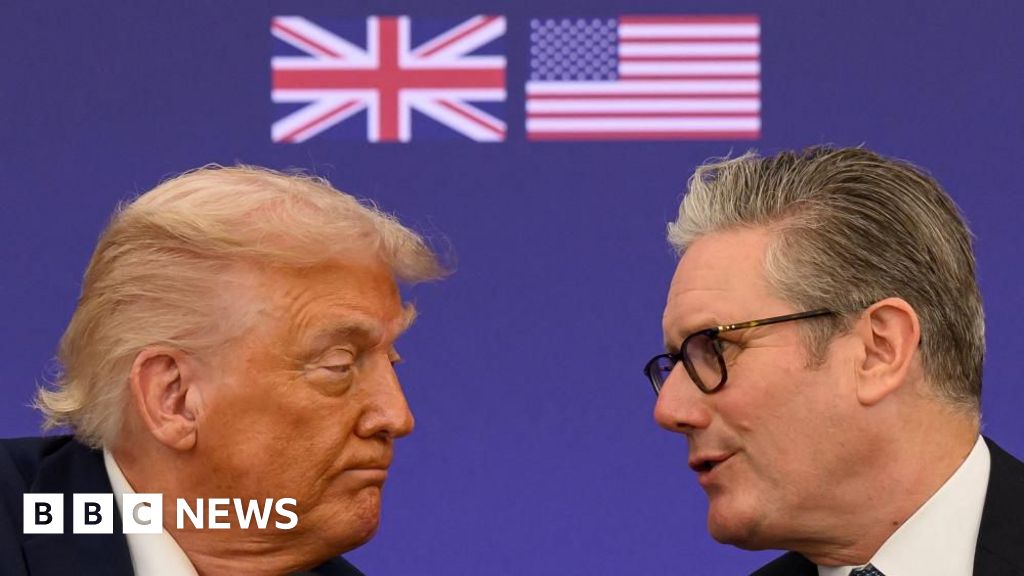
Introduction
The recent state visit of President Trump to the UK has caused quite a stir in the world of politics. While there were expected disagreements and tension, it seems that there was also a sense of delight and relief within the government. BBC's political editor, Chris Mason, observed that Trump's disagreements with Sir Keir Starmer, the UK's Shadow Brexit Secretary, were somehow channeled past him, rather than at him.
Key Details
This observation is quite telling of the current political climate in the UK. While Trump and Sir Keir may have differing views on Brexit and other issues, it seems that the government is finding ways to work around these differences in order to maintain positive relationships with the US. This further highlights the importance of diplomacy and compromise in international relations, especially in the face of divisive and contentious issues.
Impact
This state visit has also sparked discussions about the future of the UK-US relationship post-Brexit. With the UK's departure from the EU looming, it is crucial for the government to maintain strong ties with its international allies. This visit has shown that despite differing opinions, the UK and US are still able to work together for the greater good. It will be interesting to see how this relationship develops in the coming months and years as the UK navigates its way through Brexit and beyond.
About the People Mentioned
Donald Trump
Donald John Trump, born June 14, 1946, in Queens, New York, is an American businessman, media personality, and politician. He graduated from the University of Pennsylvania’s Wharton School in 1968 with a degree in economics. In 1971, he took over his family’s real estate business, renaming it the Trump Organization, through which he expanded into building and managing skyscrapers, hotels, casinos, and golf courses. Trump gained widespread fame as the host of the reality TV show *The Apprentice* from 2004 to 2015, which helped establish his public persona as a successful entrepreneur. Trump entered politics as a Republican and was elected the 45th president of the United States, serving from 2017 to 2021. His presidency was marked by significant policy actions including tax cuts, deregulation, the appointment of three Supreme Court justices, renegotiation of trade agreements (notably replacing NAFTA with the USMCA), and a focus on immigration control including border wall expansion. He withdrew the U.S. from international agreements such as the Paris Climate Accord and the Iran nuclear deal, and engaged in a trade war with China. His administration’s response to the COVID-19 pandemic was criticized for downplaying the virus’s severity. Trump was impeached twice by the House of Representatives—first in 2019 for abuse of power and obstruction, and again in 2021 for incitement of insurrection—but was acquitted by the Senate both times. After losing the 2020 election to Joe Biden, Trump challenged the results, culminating in the January 6, 2021, Capitol riot. He remains a central figure in American politics, having won the 2024 presidential election and returned as the 47th president in 2025, continuing to promote policies aimed at economic growth, border security, and military strength[1][2][3][4].
Sir Keir Starmer
Sir Keir Rodney Starmer, born September 2, 1962, in London, England, is a British politician and barrister who has been serving as Prime Minister of the United Kingdom since July 5, 2024. He is the leader of the Labour Party, a position he has held since April 2020, and has represented the parliamentary constituency of Holborn and St Pancras since 2015. Starmer’s legal career began after qualifying as a barrister in 1987; he gained recognition for providing pro bono legal defense to prisoners on death row in Commonwealth countries and later worked as a legal adviser to the Northern Ireland Policing Board following the Good Friday Agreement. Starmer was appointed Queen’s Counsel (QC) in 2002 and served as Director of Public Prosecutions and head of the Crown Prosecution Service from 2008 to 2013. In this role, he led reforms to maintain justice delivery amid public service cuts and oversaw significant cases, including the prosecution related to the Stephen Lawrence murder and improvements in support for victims of sexual and domestic violence. For his services to criminal justice, he was knighted in 2014. Entering politics, Starmer held roles as Shadow Immigration Minister (2015–2016) and Shadow Secretary of State for Exiting the European Union (2016–2020). After winning Labour’s leadership in 2020, he steered the party toward a more centrist platform compared to the previous leadership under Jeremy Corbyn. Starmer introduced a policy framework in 2023 focusing on five national missions addressing the economy, crime, the NHS, education, and climate change. As Prime Minister, Starmer holds several traditional roles including First Lord of the Treasury, Minister for the Civil Service, and Minister for the Union, overseeing government functions across the United Kingdom. His career reflects a consistent emphasis on justice, public service, and political leadership during challenging times for the UK.
Chris Mason
Chris Mason is an English actor born on February 14, 1991, in Edge Hill, Liverpool, England. He is best known for his television roles including Chad Gekko, the husband of Veronica Lodge, in the 2021 season of *Riverdale*, and as Keiran Atreides in the 2024 Max series *Dune: Prophecy*. Mason began his career with notable roles in the miniseries *The Fades* (2011) and *Lightfields* (2013), and his first film appearance was in *Vampire Academy* (2014). In 2017, he had a recurring role as Leo Humphries in the third season of *Broadchurch*[2][6]. Mason has been married to American actress Spencer Locke since 2017, and together they have a daughter named Monroe, born in 2020[2][6]. He continues to work actively in television, contributing to both dramatic and genre series. Separately, another Chris Mason is a Canadian former professional ice hockey goaltender, born April 20, 1976, in Red Deer, Alberta. He played in the NHL primarily for the Nashville Predators, Atlanta Thrashers/Winnipeg Jets, and St. Louis Blues over a career spanning from 1997 to 2015. After leaving the NHL in 2013, he retired with the Augsburger Panther of the German DEL. Since retirement, he has worked as a color commentator for the Nashville Predators on Bally Sports South[1]. Additionally, Chris Mason is a prominent British political correspondent and presenter, currently serving as the BBC Political Editor since 2022. He started his journalism career in 2001, has reported extensively for the BBC, and presented the popular political podcast *Brexitcast*, later renamed *Newscast*. He also chairs the BBC Radio 4 program *Any Questions?* since 2019[9]. Finally, Christopher E. Mason, PhD, is a leading genomics scientist and professor at Weill Cornell Medicine, known for his work in computational biomedicine, genome engineering, and space medicine. He has received numerous prestigious awards and directs several scientific initiatives[10]. The name "Chris Mason" thus refers to multiple notable individuals across acting, sports, journalism, and science.
About the Organizations Mentioned
BBC
## Overview The British Broadcasting Corporation (BBC) is the world’s oldest and largest national broadcaster, serving as a cornerstone of public service media in the United Kingdom and beyond[1][2]. Headquartered in London, the BBC operates under a royal charter and is primarily funded by a television licence fee paid by UK households, ensuring its editorial independence from both government and commercial interests[1][2]. This model allows the BBC to fulfill its mission to “inform, educate, and entertain” with impartiality at its core[3]. ## History and Evolution The BBC was founded on October 18, 1922, as the British Broadcasting Company Ltd., evolving into a public corporation under royal charter on January 1, 1927[1][2]. Its first Director-General, John Reith, established principles of independence and public service that continue to guide the organization. The BBC launched its television service in 1936, pioneering broadcasting technology, and expanded globally with the BBC World Service in 1932, now broadcasting in 28 languages[1][2]. ## Key Achievements The BBC has been a trailblazer in broadcasting, introducing innovations such as regular television broadcasts, color TV, and digital platforms like BBC iPlayer[1][2]. It has earned a reputation for high-quality journalism, producing globally recognized programs in news, drama, and documentary. The BBC’s international arm, BBC Studios, commercializes content worldwide, while the BBC World Service remains a vital source of news in regions with limited press freedom[1]. The corporation has received numerous accolades, including the Queen’s Award for Enterprise for its international business achievements[1]. ## Current Status and Digital Transformation With over 21,000 employees, the BBC remains a dominant force in media, generating £5.4 billion in annual income, mostly from licence fees[2]. It operates multiple TV channels, radio stations, and a robust online presence, including BBC News Online and BBC.com[1
UK Government
The UK Government, formally known as His Majesty's Government, is the central executive authority of the United Kingdom. It is led by the Prime Minister, currently Keir Starmer, who has been in office since July 2024. The government operates under an uncodified British constitution, where executive authority lies with the sovereign, but is exercised through the Prime Minister and the Cabinet upon receiving advice from the Privy Council[1]. ### History and Structure The UK Government has a rich history, with its structure evolving over centuries. It is divided into several ministerial departments, non-ministerial departments, executive agencies, and public bodies, totaling 24 ministerial departments[3]. The government is accountable to Parliament, which is responsible for passing legislation and scrutinizing government actions. ### Key Achievements Recent achievements include the **Spending Review 2025**, which focuses on investing in Britain's renewal by enhancing security, health, and the economy. This includes devolving power to local leaders, investing in deprived communities, and reforming public sector appraisal processes[2]. Additionally, the government has launched initiatives like the **Border Security Command** and **Immigration Reforms** to address illegal migration and streamline visa processes[5]. ### Current Status Currently, the UK Government is implementing significant digital reforms, investing heavily in digital technology and AI across public services. This includes a £1.2 billion allocation for digital priorities and launching the **Artificial Intelligence Playbook** to guide AI adoption in government departments[4][8]. ### Notable Aspects Notable aspects of the UK Government include its commitment to transparency and efficiency, evident in its efforts to modernize public services and reduce consultancy spending. The government also faces challenges such as maintaining public trust, with only 27% of people having high or moderately high trust in the national government[6]. Despite these challenges, the UK Government remains a pivotal force in shaping the country's business and technological landscape.
EU
## Overview The **European Union (EU)** is a unique political and economic partnership of 27 European countries that have chosen to work together to promote peace, stability, and prosperity across the continent[4]. Founded in the aftermath of World War II, the EU’s original goal was to foster cooperation among nations to prevent further conflict. Today, it is a major global actor in business, technology, regulation, and international affairs[6]. ## What the EU Does The EU operates as a **supranational union**, meaning it has authority over certain policy areas that transcend national borders, such as trade, competition, environmental standards, and digital regulation[1]. Its institutions—including the European Commission, Parliament, and Council—create laws and policies that member states must adopt, ensuring a level playing field for businesses and citizens across the bloc[6]. The EU’s **Single Market** allows goods, services, capital, and people to move freely, though persistent regulatory barriers still hinder full integration, particularly in services[5][7]. The euro, used by 20 member states, is one of the world’s leading currencies. ## History The EU traces its roots to the 1951 European Coal and Steel Community, founded by six countries: Belgium, France, Germany, Italy, Luxembourg, and the Netherlands[4]. Over decades, successive treaties expanded its scope and membership. The **Maastricht Treaty** (1993) formally established the EU, and subsequent enlargements brought in countries from Central and Eastern Europe after the Cold War[1]. The **United Kingdom’s exit** in 2020 (Brexit) reduced membership from 28 to 27[4]. ## Key Achievements - **Peace and Stability**: The EU is widely credited with helping maintain peace in Europe for over 70 years. - **Economic Integration**: The Single Market and euro have boosted trade, investment, and economic resilience. - **Regulatory Leadership**: The EU
